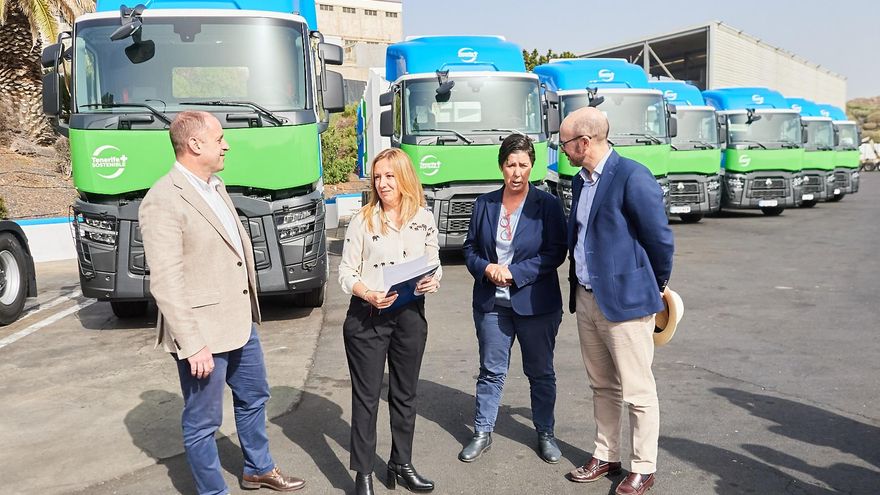
Cabildo de Tenerife has revamped its vehicles operating within the Environmental Complex of Tenerife (Arico) with an investment of four million euros. The fleet consists of 46 vehicles for various operations and is designed to enhance the efficiency of vans, trucks, and cars. In the 2024 financial year, 17 vehicles have been modernised, with further upgrades slated to continue. The councillor for Natural Environment, Sustainability, Security and Emergencies, Blanca Pérez, highlights that the new vehicles are not only safer but also more efficient, resulting in lower fuel consumption and reduced pollution. The update of the mobile fleet commenced with the substitution of 10 out of 20 trucks used daily for the collection of urban waste transported to the Arico facility from the Transfer Plants. The remaining 10 vehicles are included in a renovation scheme which will be enacted once each vehicle completes its service, with three trucks set to be replaced this year. Additionally, within the Environmental Complex of Tenerife, 12 trucks of similar specifications are in operation, five of which are newly acquired. The plan for replacing these vehicles is based on their age, generally around 10 years, as they tend to cover fewer miles annually compared to those that operate on motorways.
Further Upgrades
The renovation and substitution programme also encompasses 14 additional vehicles that contribute to the overall scheme. Three cars are allocated for staff, two of which have recently been replaced. The remaining 11 vehicles consist of cars and vans distributed across services, including SUVs and three workshop vans dedicated to specific personnel. Of these, only one SUV awaits renewal.
Optimised Fleet
Pérez emphasises that “20 trucks are responsible for transporting an average of 1,600 tons of waste daily over several trips to the Tenerife environmental complex from transfer stations, translating to management of approximately 535,000 tons in 2024 for effective disposal. To achieve this, it is crucial to maintain a fleet of as efficient vehicles as possible.” She notes that the total operations carried out by the vehicle fleet amount to over 3 million kilometres annually, figures which are significant for appreciating the vital work involved in waste management on an island like Tenerife.
Containers
Meanwhile, Alejandro Molawny, the insular director of waste, states that not only is there a focus on renewing the vehicles that manage urban-origin rubbish, but the containers used for transporting this waste are also being upgraded. “Though they form part of the transport trucks, they are individual units. Currently, we possess 130 transport containers, of which 17 are newly acquired. Moreover, as part of container maintenance, our aim is to replace them all within a three-year timeframe,” explains Molowny.
Maintenance Procedures
Molowny further asserts that “these containers require thorough maintenance to ensure they remain in optimal condition. They stand alone yet are linked to the trucks, necessitating attention to minor structural repairs, checks on opening mechanisms and ensuring proper sealing.” Alejandro Molowny also mentions that “the trucks, along with their respective containers, will feature new labels to allow residents to easily identify them, serving as a platform for reinforcing our aim of providing a distinctive, efficient, and modern service.”















